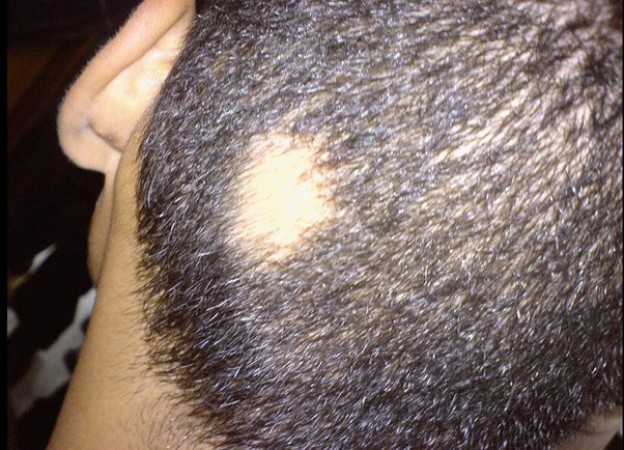
Hair loss, a common concern for many individuals, often manifests in specific patterns. One of the most perplexing patterns observed is the disappearance of hair from the middle of the head first. This phenomenon, commonly referred to as "male pattern baldness" or "androgenetic alopecia," raises questions about its underlying causes and mechanisms.
Unveiling the Mystery: The Role of Genetics
Genetic Predisposition
The primary culprit behind the peculiar pattern of hair loss lies in genetics. Research suggests that androgenetic alopecia is largely hereditary, with individuals inheriting certain genes that predispose them to hair loss. These genes dictate how sensitive hair follicles are to dihydrotestosterone (DHT), a hormone derived from testosterone.
Hormonal Influence
DHT exerts its influence by binding to androgen receptors in the scalp's hair follicles, thereby initiating a cascade of events leading to hair miniaturization and eventual follicle dormancy. Notably, the crown, or vertex, and the frontal areas of the scalp harbor follicles with higher concentrations of androgen receptors, making them more susceptible to the effects of DHT.
Miniaturization of Hair Follicles
Progressive Thinning
As DHT interacts with susceptible follicles, it initiates a process known as miniaturization. This process gradually shrinks the affected follicles, leading to the production of finer, shorter hairs with each growth cycle. Over time, these miniaturized follicles may cease to produce visible hair altogether, resulting in the characteristic balding pattern observed in individuals with androgenetic alopecia.
Understanding the Pattern
Frontal Hairline Recession
One of the hallmark signs of male pattern baldness is frontal hairline recession, often accompanied by thinning at the temples. This pattern of hair loss reflects the heightened sensitivity of follicles in the frontal region to DHT, leading to early and pronounced thinning in these areas.
Crown Thinning
Simultaneously, the crown of the head experiences progressive thinning, eventually culminating in a visible bald spot. This area, rich in androgen receptors, is particularly susceptible to the effects of DHT, resulting in the characteristic circular or oval-shaped bald patch at the crown.
Preservation of Hair at the Sides and Back
In contrast to the frontal and crown regions, the sides and back of the scalp typically remain unaffected by androgenetic alopecia. This phenomenon, often referred to as "donor dominance," is attributed to the genetically resistant nature of follicles in these areas, which are less sensitive to the effects of DHT.
Psychological Impact
Emotional Distress
Hair loss, regardless of its pattern, can have significant psychological repercussions, impacting self-esteem, body image, and overall quality of life. The gradual onset of balding, starting from the middle of the head, can be particularly distressing for individuals, as it alters their appearance and may evoke feelings of insecurity and anxiety.
Coping Strategies
Despite the challenges posed by hair loss, there are various coping strategies and treatment options available to manage the condition. From topical medications and oral supplements to hair transplantation procedures, individuals have access to a range of interventions aimed at slowing down hair loss and promoting regrowth. In conclusion, the disappearance of hair from the middle of the head first, observed in individuals with androgenetic alopecia, is primarily attributed to genetic factors and hormonal influences. Understanding the underlying mechanisms of this pattern can aid in the development of targeted interventions to address hair loss effectively. Moreover, fostering awareness and empathy for individuals experiencing hair loss is essential in promoting a supportive and inclusive environment.
Exploring Acxion Pills: Weight Loss Benefits, Risks, and Safer Alternatives
Slight Increase in Essential Medicine Prices Expected from April 1"
World Sleep Day 2024: Date, Theme, History, and Significance Explained